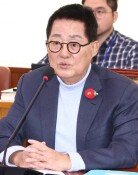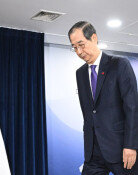Downsizing USFK could help denuclearization talks, presidential advisor says
Downsizing USFK could help denuclearization talks, presidential advisor says
Posted May. 29, 2020 07:33,
Updated May. 29, 2020 07:33
Moon Chung-in, the special foreign affairs advisor to President Moon Jae-in, said a gradual disarmament of the U.S. military forces stationed in South Korea could serve as a negotiation card in the denuclearization talks with North Korea.
“Amid the emergence of China and the continued military threats from North Korea, most South Koreans support ROK-U.S. alliance, a significant share of people want the U.S. forces to stay on the peninsula,” said the special advisor in a virtual seminar conducted by Quincy Institute for Responsible Statecraft on Wednesday (local time).
“But when it does come to cutting the size of U.S. forces stationed in Korea, many would hope that there would be a link between the gradual disarmament and North Korea’s denuclearization effort,” the presidential advisor said. “It could be used as a negotiation card for a more swift denuclearization of the Korean Peninsula. By default, however, most South Koreans would hope that the U.S. forces will stay in the country, be they conservatives, the middle-of -the-road, or center-leftists.”
“Washington is demanding a year-long agreement beyond the remit of the Special Measures Agreement,” the special advisor spoke about the talks on defense cost sharing between the two allies, stressing that “going that way, it would be impossible for the Korean national assembly to come to terms with the demand.”
As to the frictions between Washington and Beijing over Hong Kong’s national security law, Moon said while the U.S. comes before China as Seoul and Washington are allies, but antagonizing Beijing could bring about a new cold war to the Korean Peninsula. “Our priority is the United States, which is our ally, but we have a structure dependent on China,” he added. “Antagonizing China could lead to Beijing’s flexing military muscles against South Korea, supporting the North, and inviting a new cold war to the peninsula and the entire North East Asian region. We hope to keep good relations with both countries.”
lightee@donga.com







